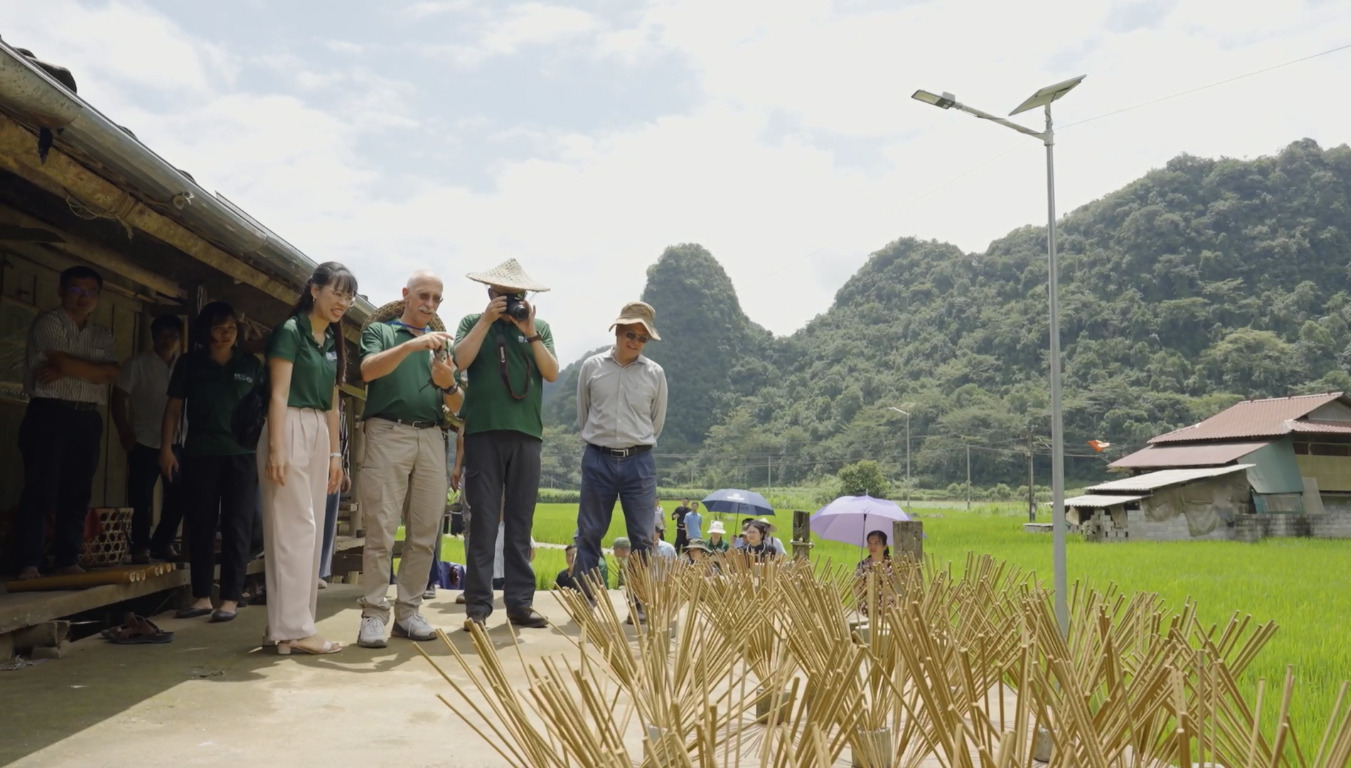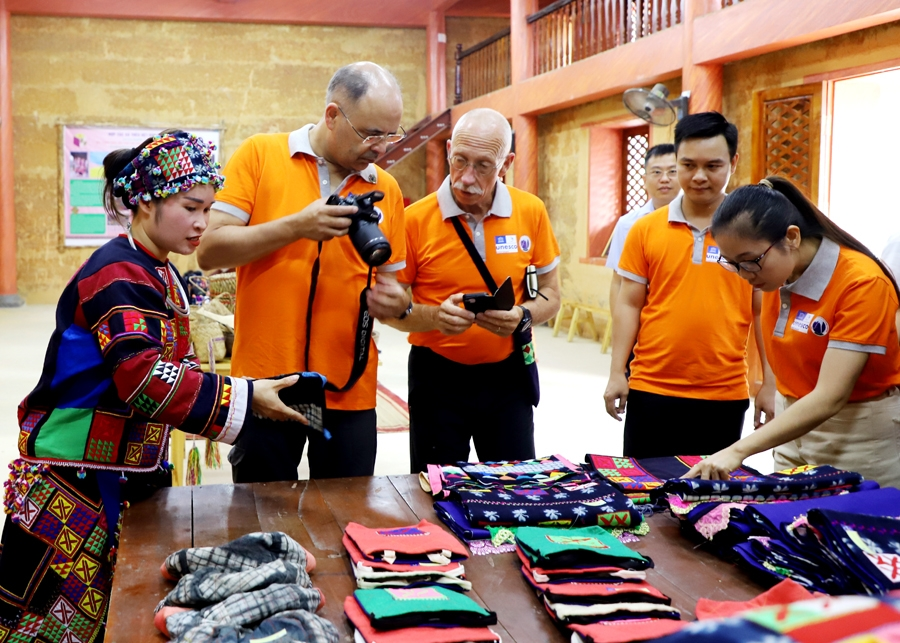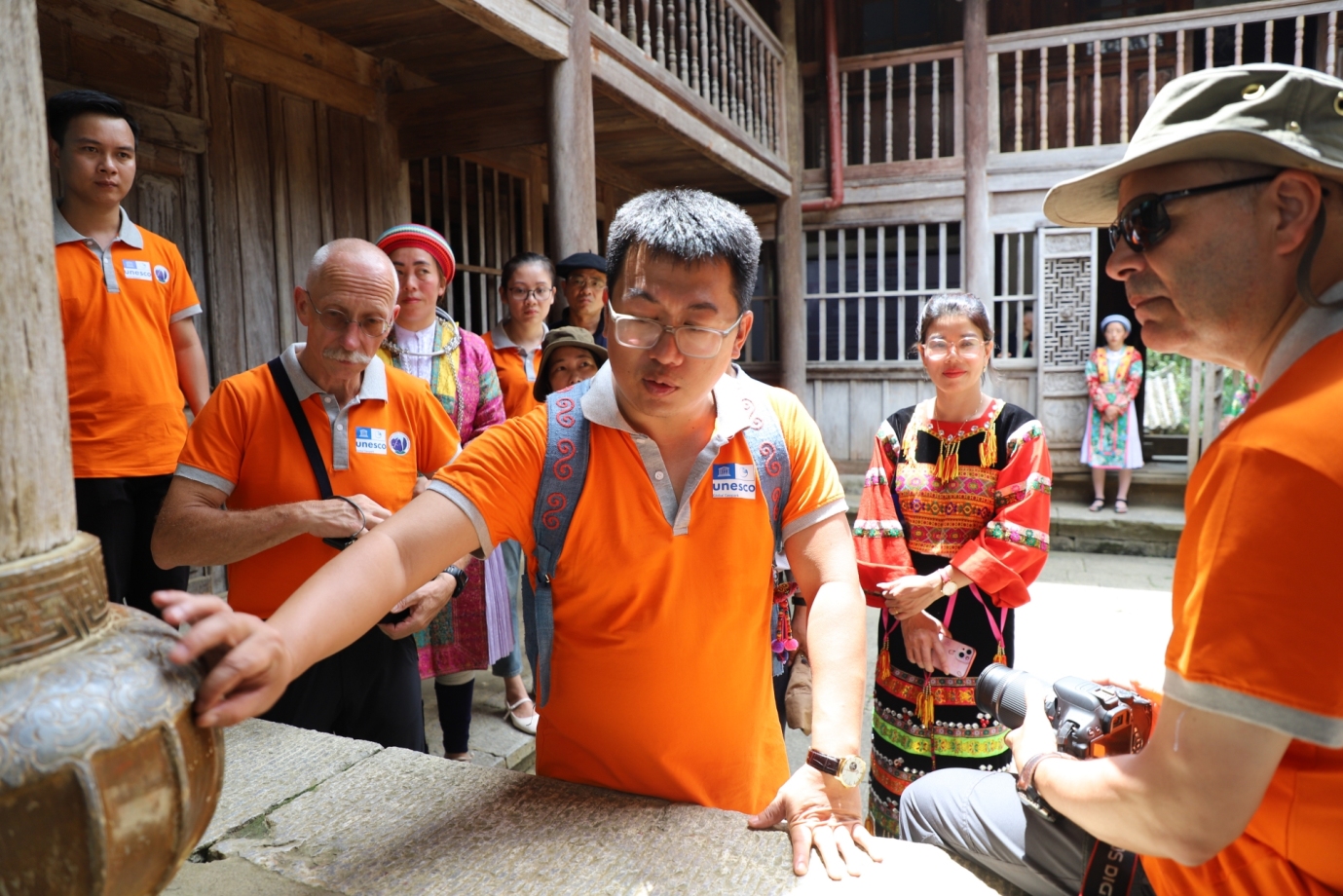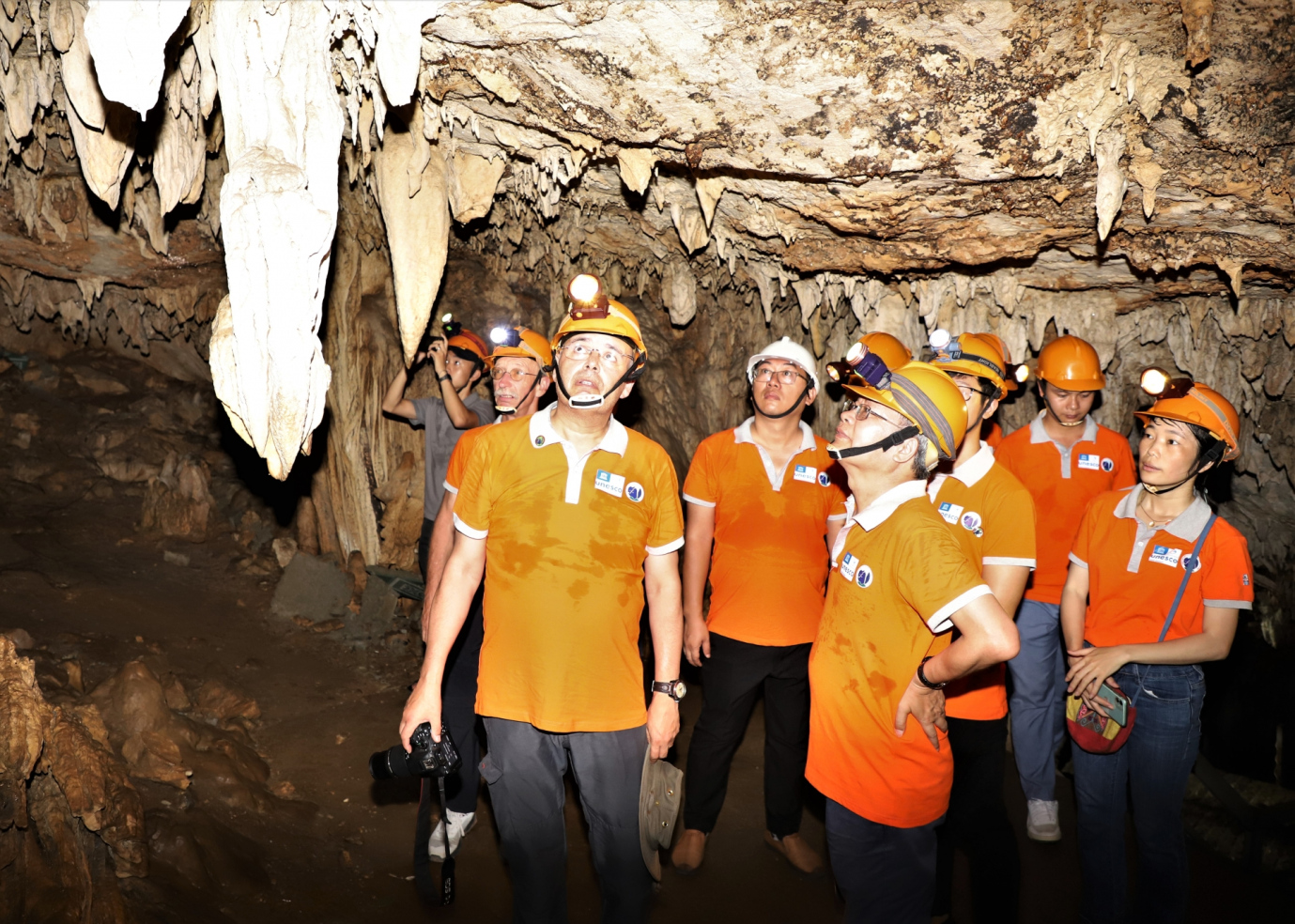(TITC) – Cao Bang and Ha Giang are the two typical provinces that possess Global Geopark title, including Non Nuoc Cao Bang and Dong Van Karst Plateau. A group of experts from the UNESCO led by Artur Sá, UNESCO senior expert – Chairman of the European Global Geopark Network had a meeting with leaders of the two provinces on the re-verification of the title of the Global Geopark.
The appraisal team includes senior Portuguese and French experts; representatives of the Vietnam UNESCO Committee; experts from the Institute of Geology and Minerals.
This is the first re-verification since Non Nuoc Cao Bang Geopark was recognized by UNESCO as a global Geopark, in order to evaluate the implementation of UNESCO’s criteria for geoparks in the world.
Non Nuoc Cao Bang Global Geopark, located in the north of Vietnam, 300km from Ha Noi. Non Nuoc Cao Bang has been recognised as a UNESCO global geopark, becoming the second of its kind in Vietnam after Dong Van Karst Plateau. It covers six districts of Ha Quang, Tra Linh, Quang Yen, Trung Khanh, Ha Lang, Phuc Hoa, and part of Hoa An, Nguyen Binh and Thach An districts. The geopark is home to nine ethnic groups including Tay, Nung, Mong, Dao and San Chay.
It is a land of tangible and intangible cultural heritage sites and special historical monuments. The area is also well-known for its high biological diversity with abundant endemic plant and animal species and ecosystems.
From 14th to 16th August, the expert group explored three main routes of the geopark, including going to the east to experience traditional cultures, north to see history and freedom, and west to experience Phia Oac, the mountain of transformations.
On 14th August, a delegation of UNESCO experts conducted an appraisal of heritage sites in the experiential tourist route to the east of Non Nuoc Cao Bang Geopark in Quang Hoa and Trung Khanh districts. The Eastern tourist route named “Experience indigenous culture in wonderland” includes many geological and cultural heritage sites. The expert team in turn assessed the level of conservation and promotion of values at the following points: Basalt heritage of Ma Phuc Pass, Mat Than (Divine Eye) Mountain heritage, Phia Thap incense craft village, Dia Tren paper village, Phuc Sen knife-forging village, the heritage site of the holy water mine (Quang Hoa District); waterwheel heritage site, Ban Gioc Waterfall, Nguom Ngao Cave, Khuoi Ky ancient stone village, Lan Homestay partner site (Trung Khanh District).

The expert team at the Phia Thap incense craft village (Quang Hoa District) (Photo: caobangtv.vn)
At the heritage sites, the expert team found that the recommendations of the previous survey were implemented by the people and local authorities such as: landscape embellishment, signboards; ensuring harmonious architecture around the heritage site; Creative gift packaging at Phia Thap incense village…
The expert team went on a re-verification trip to Dong Van Karst Plateau with 3 routes, namely: Journey to Pride and Happiness (3rd route), Melodies of life on the rock (2nd route) and Journey to the place where life begins (1st route), from 18th to 20th August.
Accordingly, the re-verification of 3rd route took place at 2 districts Meo Vac and Dong Van on 18th August. Here, the expert team paid a visit to Lo Lo ethnic brocade production cooperative; Tuan Dung mint honey cooperative; Uncle Ho monument; Meo Vac district information station (Meo Vac Town); Ma Pi Leng Pass Information Station; The Youth Volunteers Monument and the white cliff walking route; Visit Lung Cu National Flagpole; the community accommodation model in Lo Lo Chai village (Lung Cu Commune); Ma Le ancient house (Ma Le Commune); Khe Lia panorama point (Ma Le Commune, Dong Van District).
At the visiting sites, the team listened to the speakers introduce the outstanding value of geological and cultural heritage sites contributing to the development of local tourism; OCOP products, activities of several points in increasing livelihoods and ensuring the lives of people in the area. At the same time, verify each item of infrastructure, environmental sanitation, heritage landscape protection, conservation and promotion of indigenous cultural values at community tourist sites…

The expert team visiting Lo Lo ethnic brocade production cooperative (Photo: dongvangeopark.com)
The re-verification of 2nd route took place on 19th August, on a more than 40km long road, from Dong Van Town to the end of Van Chai Commune. The expert team had the survey and verification in: Dong Van Ancient Town; Temple of water god; the way to the Upper Fort; Cultural Space Museum of the Ethnic Minorities of Dong Van Region, Dong Van Town; sacred tree in Thai Phin Tung Commune; Vuong Family’s Palace; lunar terrain in Sa Phin Commune; the boundary of the global life crisis in Sung La; Cultural village in Lung Cam Village, Sung La Commune; Tham Ma Slope; Hai Cau (Seal) Rock Field and Da Sach (Rock Book) , Van Chai Commune.
In the field, the team surveyed and evaluated each infrastructure item, new check-in points, signboards, introduction and guidance signs, parking lots, environmental sanitation and protection of heritage landscapes, preserving and promoting indigenous cultural values of community tourist sites; Vietnamese-English bilingual interpretation and introduction at heritage sites…

The expert team surveyed the architecture in the Vuong Family’s Palace (Photo: dongvangeopark.com)
Lastly, the re-verification of 1st route took place on 20th August and surveyed a number of points: Yen Minh information station and stilt house (Yen Minh Town); Lonely tree points in Can Ty Commune; Lanh Can Ty weaving Cooperative, Can Ty Commune; Lung Khuy Cave; Nam Dam Cultural village; Quan Ba Primary school for ethnic minorities; Mat Truot Point; Information Station and Vong Canh Hill; Quan Ba sky gate; Binh An Temple and Thach Son Than (Mount God Rocks).
Works on management, protection and development of the facility system at Dong Van Karst Plateau were verified. The expert reminded the districts located in the Dong VanKarst Plateau to improve work in management and operation; districts in the region must have a connection and cohesion to act together so that people in the region can preserve and develop together; building, developing and preserving cultural space, language, environment…

The expert team at Lung Khuy Cave (Photo: dongvangeopark.com)
Tourism Information Technology Center




